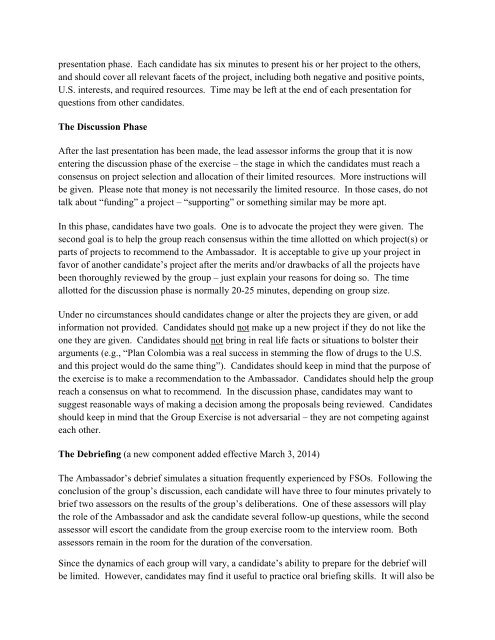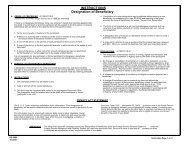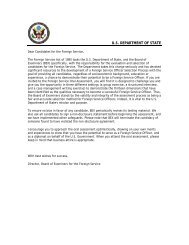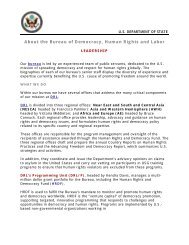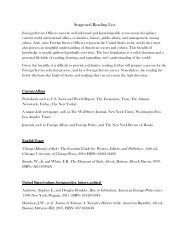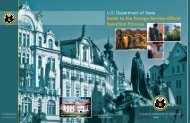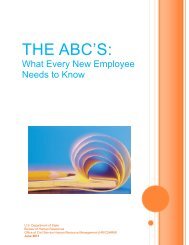Foreign Service Officer: ORAL ASSESSMENT STUDY GUIDE
Foreign Service Officer: ORAL ASSESSMENT STUDY GUIDE
Foreign Service Officer: ORAL ASSESSMENT STUDY GUIDE
You also want an ePaper? Increase the reach of your titles
YUMPU automatically turns print PDFs into web optimized ePapers that Google loves.
presentation phase. Each candidate has six minutes to present his or her project to the others,<br />
and should cover all relevant facets of the project, including both negative and positive points,<br />
U.S. interests, and required resources. Time may be left at the end of each presentation for<br />
questions from other candidates.<br />
The Discussion Phase<br />
After the last presentation has been made, the lead assessor informs the group that it is now<br />
entering the discussion phase of the exercise – the stage in which the candidates must reach a<br />
consensus on project selection and allocation of their limited resources. More instructions will<br />
be given. Please note that money is not necessarily the limited resource. In those cases, do not<br />
talk about “funding” a project – “supporting” or something similar may be more apt.<br />
In this phase, candidates have two goals. One is to advocate the project they were given. The<br />
second goal is to help the group reach consensus within the time allotted on which project(s) or<br />
parts of projects to recommend to the Ambassador. It is acceptable to give up your project in<br />
favor of another candidate’s project after the merits and/or drawbacks of all the projects have<br />
been thoroughly reviewed by the group – just explain your reasons for doing so. The time<br />
allotted for the discussion phase is normally 20-25 minutes, depending on group size.<br />
Under no circumstances should candidates change or alter the projects they are given, or add<br />
information not provided. Candidates should not make up a new project if they do not like the<br />
one they are given. Candidates should not bring in real life facts or situations to bolster their<br />
arguments (e.g., “Plan Colombia was a real success in stemming the flow of drugs to the U.S.<br />
and this project would do the same thing”). Candidates should keep in mind that the purpose of<br />
the exercise is to make a recommendation to the Ambassador. Candidates should help the group<br />
reach a consensus on what to recommend. In the discussion phase, candidates may want to<br />
suggest reasonable ways of making a decision among the proposals being reviewed. Candidates<br />
should keep in mind that the Group Exercise is not adversarial – they are not competing against<br />
each other.<br />
The Debriefing (a new component added effective March 3, 2014)<br />
The Ambassador’s debrief simulates a situation frequently experienced by FSOs. Following the<br />
conclusion of the group’s discussion, each candidate will have three to four minutes privately to<br />
brief two assessors on the results of the group’s deliberations. One of these assessors will play<br />
the role of the Ambassador and ask the candidate several follow-up questions, while the second<br />
assessor will escort the candidate from the group exercise room to the interview room. Both<br />
assessors remain in the room for the duration of the conversation.<br />
Since the dynamics of each group will vary, a candidate’s ability to prepare for the debrief will<br />
be limited. However, candidates may find it useful to practice oral briefing skills. It will also be


